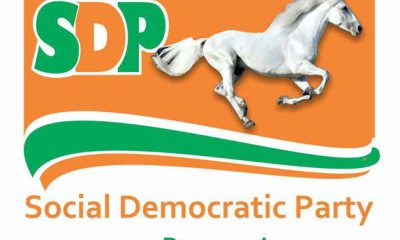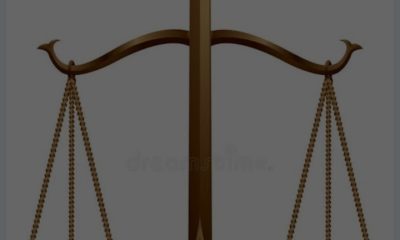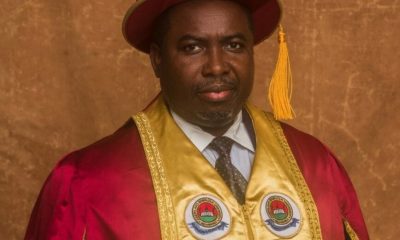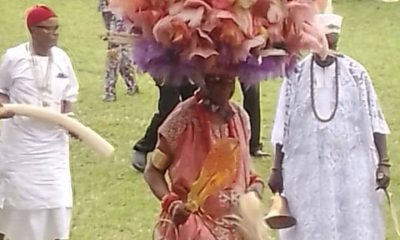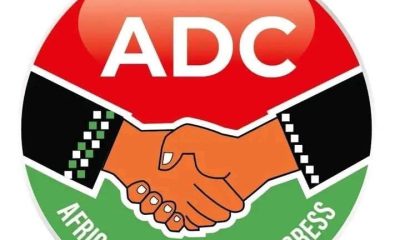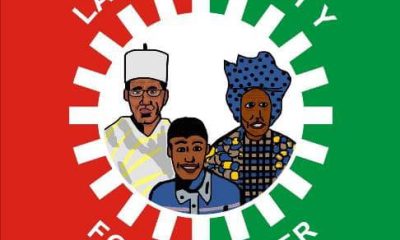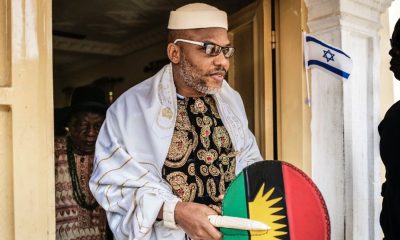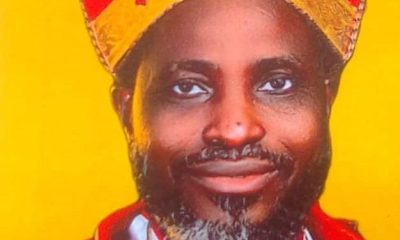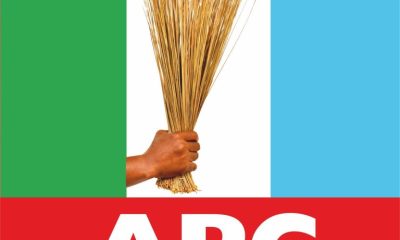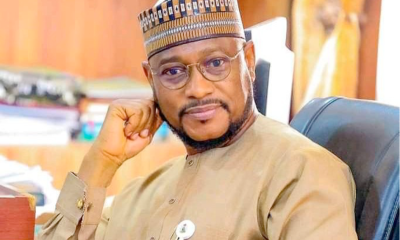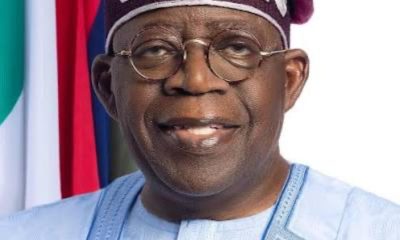Politics
June 12: From Annulment to Acknowledgment — How Nigeria Reclaimed Its Democratic Conscience
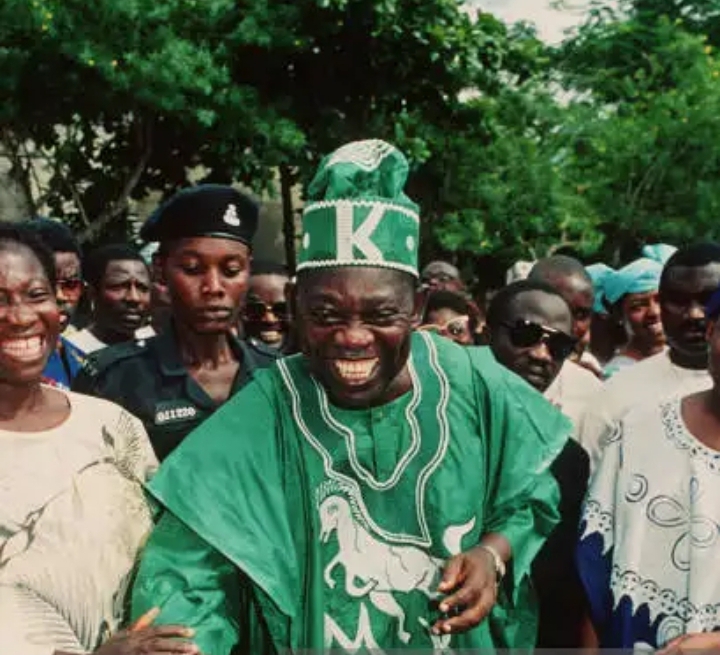
By George Mgbeleke
On June 12, 1993, Nigerians queued under the scorching sun to vote in what is still widely described as the most credible election in the country’s history. It was a hopeful day—an emphatic break from years of military dictatorship, and a reaffirmation of national unity. But that hope was quickly dashed. Less than two weeks later, the military government of General Ibrahim Babangida abruptly annulled the election results, robbing Moshood Kashimawo Olawale Abiola—popularly known as MKO—of his mandate, and plunging the country into a prolonged political crisis.
More than two decades later, what was once a symbol of democratic betrayal has been elevated into a national holiday. June 12 is now Democracy Day, formally replacing May 29. But how did this date, once erased from official records and silenced in public discourse, become the bedrock of Nigeria’s democratic identity?
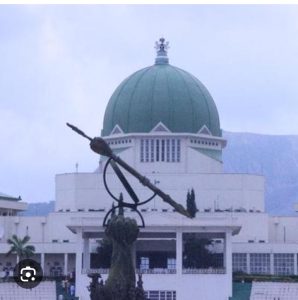
National Assembly Complex
This feature examines the pivotal milestones—from the annulment of Abiola’s victory, to Buhari’s executive action, legislative endorsement by the National Assembly, and finally the symbolic and legal transition of Democracy Day from May 29 to June 12.
I. June 12, 1993: The Election That Was, But Never Was
The 1993 election was organized under a two-party system decreed by the military regime: the Social Democratic Party (SDP) and the National Republican Convention (NRC). Abiola, a wealthy businessman, publisher, and philanthropist, ran under the SDP, while Bashir Tofa of the NRC was his opponent. The election employed the novel Option A4 system, an open ballot system designed to limit rigging.
When results began to surface, it was clear that Abiola had secured a landslide victory, winning in 19 out of 30 states—including Tofa’s own Kano State. According to a report by the Civil Liberties Organization (CLO), Abiola had won “across ethnic and religious lines—a feat rare in Nigerian politics.”
But just as Nigerians prepared to celebrate a peaceful transition, the National Electoral Commission (NEC) was ordered to halt announcements. On June 23, 1993, Babangida issued Decree No. 61, annulling the election on the basis that it was riddled with “legal and procedural irregularities.” Many saw it for what it was—a blatant rejection of the people’s will.
Prominent jurist and human rights advocate Gani Fawehinmi described the annulment as “a coup against democracy.” Nobel Laureate Wole Soyinka called it “the rape of our democratic innocence.”
The aftermath saw Abiola’s refusal to renounce his mandate. He famously declared on June 11, 1994:
“I am prepared to pay the supreme price, if need be, in the course of defending the mandate of the Nigerian people.”
A day later, he was arrested by General Sani Abacha’s regime. He would remain in detention for four years until his death on July 7, 1998, under mysterious circumstances—just a month after Abacha himself died.
II. Buhari’s Executive Gesture: Symbolism with Teeth
Fast forward to June 6, 2018. In a rare political move, President Muhammadu Buhari issued an executive order declaring June 12 as Nigeria’s new Democracy Day, posthumously awarding Abiola the Grand Commander of the Federal Republic (GCFR)—an honor previously reserved for Presidents and Heads of State.
“June 12, 1993, was far more symbolic of democracy in the Nigerian context than May 29 or even October 1,” Buhari said in his official statement.
Buhari, a former military ruler turned elected President, acknowledged what previous governments had failed to: the democratic mandate of the people in 1993 was valid, and its annulment was a historical injustice.
The decision surprised many, especially as Buhari had never been considered close to the political left or the pro-democracy camp that rallied behind Abiola. Critics speculated political motives, including a strategic move to win support in the South-West ahead of the 2019 elections. Yet, for the first time, the Nigerian state formally admitted its wrongdoing and symbolically reversed history.
III. Legislative Legitimacy: National Assembly Seals the Date
While executive orders carry symbolic weight, they require legislative backing to achieve permanence. In 2019, the National Assembly passed a bill amending the Public Holidays Act, officially recognizing June 12 as Democracy Day and replacing May 29.
The bill was sponsored by Hon. Edward Pwajok in the House of Representatives and received broad bipartisan support. Senate President Ahmed Lawan praised the passage as “a long-overdue institutional acknowledgment of a historic truth.”
With this act, Democracy Day was no longer just an executive declaration but a law of the land. This legislative endorsement gave June 12 both constitutional grounding and national permanence.
IV. May 29 to June 12: Shifting the Democratic Narrative
May 29 had been commemorated since 1999 as Democracy Day, marking the transfer of power from General Abdulsalami Abubakar to President Olusegun Obasanjo. But many Nigerians viewed May 29 as a top-down, elite-oriented celebration—lacking emotional resonance with the masses.
June 12, however, is remembered with grief, protest, resistance—and hope. It represents the democratic energy of ordinary Nigerians who queued to vote, protested in the streets, and endured military crackdowns. It is a date earned, not merely granted.
Historian Toyin Falola once noted:
“June 12 is not just a date. It is a metaphor for resistance. A question that demands an answer: Can the people’s will ever prevail in Nigeria?”
In reassigning Democracy Day to June 12, Nigeria chose to answer that question affirmatively—at least symbolically.
V. The Significance Beyond the Symbol
Yet, even as June 12 is now officially commemorated, the deeper question remains: Has the country truly internalized its lessons?
In recent years, elections have continued to be plagued by violence, voter suppression, and judicial controversies. Electoral reforms, though initiated, remain incomplete. Civil society voices are increasingly muffled, and insecurity continues to threaten voter turnout and political participation.
To quote MKO Abiola himself:
“You cannot shave a man’s head in his absence.”
June 12 was about presence—the people’s presence in the democratic space. If the day is to be more than a holiday, it must inform electoral behavior, civic engagement, and political accountability.
Conclusion: From Ritual to Redemption
The recognition of June 12 as Democracy Day is not just a symbolic act—it is a national confession, a moral restoration. It reclaims a date that was nearly erased, and turns it into a monument of remembrance and a call to action.
But Nigeria must go beyond ritualistic ceremonies. The spirit of June 12 demands more—transparent elections, a robust civil society, institutional reforms, and above all, a political class that honors the will of the people.
In reclaiming June 12, Nigeria has taken a bold step toward democratic redemption. But the journey is not over. The real celebration lies in sustaining the ideals for which MKO Abiola died: justice, unity, and the inviolability of the people’s mandate.
Politics
Prioritize welfare and security of Nierians not 2027 politics, LP Reps tell Tinubu, APC
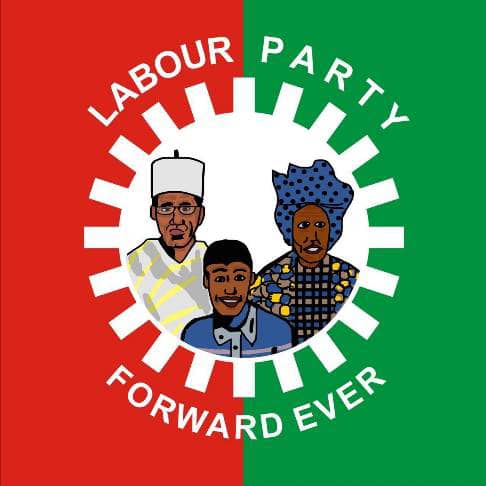
By Our Correspondent
The Labour Party Caucus in the House of Representatives has expressed disappointment and concern that the ruling All Progressives Congress (APC) is prioritizing 2027 politics over the welfare and security of Nigerians, labeling it insensitive, unconscionable and a clear example of questionable leadership.
They emphasized that while the President’s aspiration for re-election is legitimate, his priority should be addressing the pressing challenges facing Nigerians.
In a statement issued by the Labour Party Caucus Leader, Hon. Afam Victor Ogene, in Abuja on Sunday, the lawmakers reiterated that the primary duty of a government is to ensure the welfare and security of its citizens. However, they criticized the APC and President Bola Tinubu for prioritizing their 2027 reelection bid over these fundamental responsibilities. The statement expressed concern and bewilderment that while the nation grapples with insecurity, the ruling party is either ignoring the issue or offering superficial solutions rather than addressing the problem effectively.
These concerns were raised amid escalating insecurity nationwide and the administration’s struggles to fund budgets and demonstrate accountability. “The situation has led to prolonged protests by local contractors who remain unpaid for completed projects, sparking economic hardship, stalled development, and a dearth of new projects.”
Recently, these aggrieved contractors have been holding vigils outside the Ministry of Finance, highlighting the government’s shortcomings.
The Labour Party representatives highlighted that the “Appropriation Act, a law governing budget allocation, has been consistently disregarded by the current administration.” They pointed out the irony of the government pursuing costly projects like the controversial multi-trillion naira coastal road without proper appropriation or procurement processes, while essential federal road infrastructure lies in disrepair. This has raised concerns among citizens, particularly those planning to travel during the festive season, who face not only difficult road conditions but also heightened insecurity.
Also of grave concern is the opaque expenditure of N17.5 trillion, in 2024 alone, on a pipeline-security contract, as revealed in the recently audited accounts of the Nigerian National Petroleum Company, NNPC.
“Nigerians would remember that over a 12-year period, the country spent about N18 trillion on subsidy(which benefitted everyone through affordable transportation and cheaper costs of foodstuffs), but on the excuse of lack of funds to sustain the subsidy regime, this Administration has clearly robbed Peter(Nigerians), to pay Paul(cronies), through a questionable pipeline-security contract whose executors are unknown.”
This statement paints a grim picture of Nigeria’s current state, highlighting concerns about the effectiveness of its government branches. “The executive is seen as underwhelming, the judiciary’s decisions are questioned, and the legislature is criticized for not having the moral fiber to hold the executive accountable.
“Our dear country, Nigeria has become a special economic zone: everyone and everything now has a price. Kidnappers and bandits now have prices on the heads of the citizenry; elected officials now have a price to look the other way; and opposition figures have prices to enthrone chaos in their own platforms. Even the clergy and ulamas are not spared the chicanery of the divisive effects of a gravely monetized polity.
“Pray, Nigerians, we’re in the 12th month of the year, 2025. In fact, across government owned enterprises, ministries, departments, and agencies of government, none can boast of 10 percent of execution of the capital component of the budget. In most cases, the scorecard reads nil.
“Yet everyone carries on, as though this has become the new normal.
Worse is the glaring impunity of relevant officials not bothering to explain to anyone where revenues meant for the implementation of the budget have ‘disappeared’ to.
“Nigeria is on a negative cruise; local contractors occupying the offices of the Federal Ministry of Finance, retired police officers taking over the gates of the National Assembly, while kidnappers freely choose where to strike every single day, yet the only response by government is to launch and distribute vehicles for a purported Renewed Hope Agenda.
So, while the country sits on the precipice, all Mr. President thinks about is to return to power in 2027.
“Mr. President, while your quest is a legitimate aspiration, please do well to attend to the current stark realities confronting Nigerians.
Besides the parlous state of Nigerian roads – which now ensures that a hitherto six hours journey, from either Lagos or Abuja to the South South or South East, now takes an entire day to traverse – is the grim reality of possible kidnap which stares every road user in the face.
“Some lawmakers are reflecting on their roles and acknowledging that many are complicit, silenced by potential pecuniary gains. Many have described the 10th Assembly as the worst in Nigeria’s democratic history, reduced to puppetry and rubber-stamping, with no tangible benefits for citizens. They criticize the government for prioritizing economic interests over citizens’ welfare, labeling it “economic banditry.”
“We must not continue on this sorry path. Both the ruling party and opposition must put aside politics and prioritize the people’s welfare. Citizens are the backbone of democracy, and their interests should come above all else.”
Politics
Rivers Assembly Speaker, 16 others dump PDP for APC
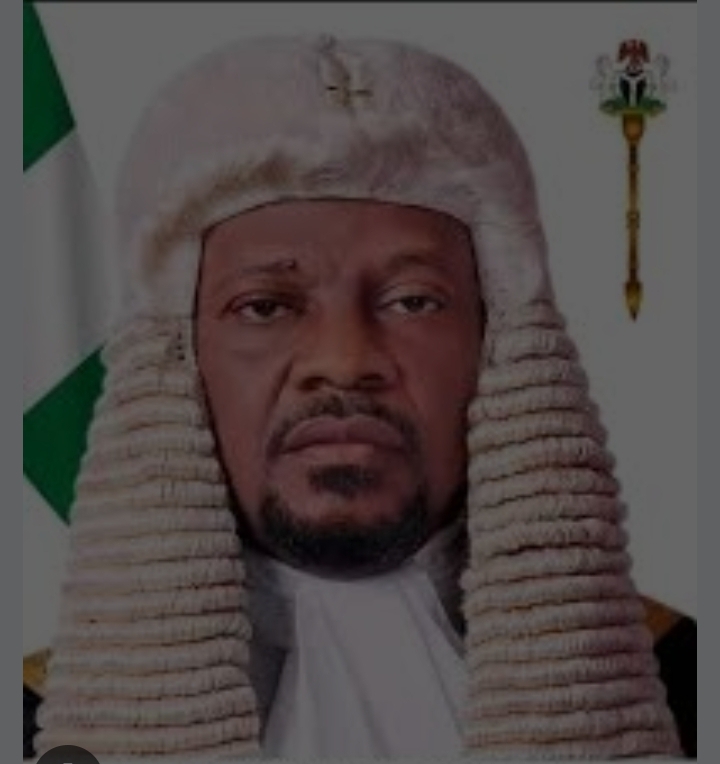
By Our Correspondent
Seventeen members of the 10th Rivers State House of Assembly, on Friday, defected from the Peoples Democratic Party (PDP) to the All Progressive Congress (APC).
The lawmakers announced their defection during plenary on Friday, December 5, 2025 at the Auditorium of the Assembly quarters currently used as the hallowed chambers.
The defected lawmakers, led by Speaker of the House, Martin Amaehwule, cited the division in the PDP at the national level as the reason for their defection, noting that the situation has made the future of the party “hazy and nebulous”.
Among the lawmakers who defected to the All Progressive Congress were; the Speaker, Martin Amaewhule, Deputy Speaker, Dumle Maol, Majority Leader, Major Jack, Deputy Majority Leader, Linda Somiari- Stewart, Chief Whip, Hon. Frankline Nwabuchi, and the Deputy Whip, Hon. Ofiks Kabang.
Others are; Hon. Peter Abbey, Smart Adoki, Igwe Aforji, Arnold Davids, Enemi George, Tekenari Granville, Christian Nwankwo, Gerald Oforji, Azeru Opara, Lolo Opuende, and Hon. Solomon Wami.
Recall that the Speaker, Martin Amaehwule had in December 2023, in the heat of the over two years political crisis in the state, led all 27 members of the Assembly loyal to the FCT Minister to the APC but later denied their defection, and returned to the PDP.
Meanwhile, the PDP which is now the minority party in the House with 9 members, has constituted their officers with Hon. Sylvanus Nwankwo emerging the Minority Leader, Hon. Barile Nwakoh was elected Deputy Minority Leader, Hon. John Dominic Iderima, Minority Whip, and Hon. Justina Emeji, Deputy Minority Whip.
The Assembly has also renewed its earlier call on the State Governor, Sir Siminalayi Fubara to forward his list of Commissioner-nominees to the House for screening and confirmation in line with the 1999 Constitution; regretting that “the State is yet to have the complement of a full cabinet.”
The Assembly also reaffirmed its earlier resolution made on the 14th of December, 2023, and adopted the auditorium at the State House of Assembly quarters as its legitimate and lawful Chamber for the conduct of legislative businesses for the life of the Tenth Assembly of the State.
Speaker of the Assembly, Martin Amaehwule in his speech lauded President Bola Tinubu for his purposeful and exceptional leadership and pledged their support to the APC and the President.
Politics
Sulu – Gambari , Ita Enang , Dambazzau , Ibas Ibok -Ete, 61 others make Tinubu’s Ambassadorial list
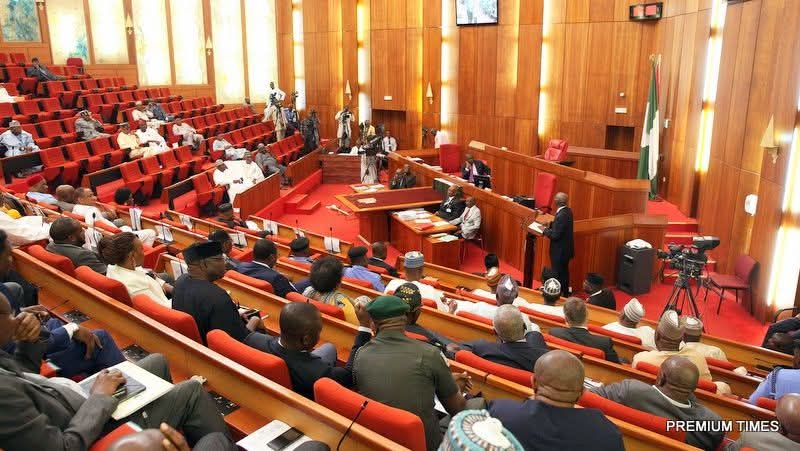
By George Mgbeleke
The Senate Thursday received requests for confirmation of nominations of 65 Ambassadorial nominees from President Bola Ahmed Tinubu.
The nominees as read from two different lists by the President of the Senate , Godswill Akpabio during plenary, fell into two categories of 34 Career Ambassadors and High Commissioners and 31 Non – Career Ambassadors and High Commissioners designate .
Notable names among the 34 Carrer Ambassadors and High Commissioners are Ambassador Sulu – Gambari Olatunji Ahmed from Kwara State , Ambassador Ahmed Mohammed Monguno from Borno State , Ambassador
Maimuna Ibrahim from Adamawa State etc .
Notable in the list of Non Career Ambassadors and High Commissioners are Senator Solomon Ita Enang from Akwa Ibom State , Vice Admiral Ibas Ibok – Ete from Cross River State , Ex Chief of Army Staff, Abdulrahaman Dambazzau from Kano etc .
President Tinubu in the requests hinged on section 171 sub section 1, 2 and 4 of the 1999 Constitution , sought for expeditious consideration of the nominees .
Accordingly, the President of the Senate, forwarded the requests to the committee on Foreign affairs for screening and report back within one week .
Recall that President Tinubu had earlier forwarded to the Senate , three ambassadorial nominees last week for appointment confirmation .
The three earlier nominees , namely
Kayode Are ( Ogun State), Aminu Dalhatu ( Jigawa) and Ayodele Oke ( Oyo State ), were screened on Wednesday by Senator Abubakar Sani Bello ( Niger North ) led committee .
Full list of the Ambassadorial nominees per state reads : ” Ambassador Ezenwa Chukwuemeka ( Abia ) Maimuna Ibrahim ( Adamawa ), Monica Ogochukwu ( Anambra) ,
Ambassador Mohammed Mahmoud Lele ( Bauchi) ,
Endoni Sindo ( Bayelsa) and Ambassador Ahmed Mohammed Minguno ( Borno ) .
Others are Jane Adams Okon Michael ( Cross River ), Clark Omeruo Alexandra ( Delta ), Chimma Geofrey Davies ( Ebonyi) ,
Oduma Yvonne Ehinose ( Edo State ), Wasa Segun Ige ( Edo State )
Ambassador Adeyemi Adebayo Emmanuel ( Ekiti ), Ambassador Onaga Ogechukwu Kingsley ( Enugu ) and
Magaji Umar ( Jigawa) .
Other nominees in the category of Career Ambassadors are
Mohammed Saidu Dahiru ( Kaduna ) ,
AbdulSalam Abus Zayat ( kano) ,
Shehu Barde ( Katsina ) , Aminu Nasiu ( Katsina ),
Abubakar Musa Musa ( Kebbi) ,Mohammed Idris ( Kebbi) ,
Bako Adamu Umar ( Kogi ) ,
Sulu Gambari Olatunji Ahmed ( Kwara ),
Ramata Mohammed ( Lagos ), Shaga John Shama ( Nasarawa )
Salau Hamza Mohammed ( Niger ) and Ibrahim Danlami ( Niger ) .
Others are
Adeola Ibrahim Mopelola ( Ogun) ,
Ruben Abimbola Samuel ( Ondo),
Akande Wahab Adekola ( Osun) ,
Adedokun Esther ( Oyo) ,
Gedagi Joseph John ( Plateau ) ,
Luther Obomode Ayokalata ( Rivers ),
Danladi Yakubu Yaku ( Taraba ) and
Bello Dogondaji ( ( Zamfara ) .
Names on the list of the 31 Non – career ambassadorial nominees are
Senator Grace Bent ( Adamawa ) , Senator Eta Enang ( Akwa – Ibom),
Nkechi Linda Okocha ( Anambra ),
Mahmud Yakubu ( Bauchi )
Philip K. Ikurusi ( Bayelsa ) ,
Paul Oga Adikwu ( Benue ),
Vice Admiral Ibok-Ette Ibas rtd ( Cross River ),
Hon. Abasi Braimah ( Edo ) and
Erelu Angela Adebayo Ekiti )
Others are Barrister Olumilua Oluwayimika Ayotunwa ( Ekiti ),
Rt. Hon. Ifeanyi Ugwuanyi ( Enugu State ) ,
Barr. Mrs. Chioma Ohakim ( Imo State ),
Lt. Gen. Abdulrahman Bello Dambazau (rtd.) ( Kano State ),
Hon. Tasiu Musa Maigari ( Katsina ) ,
Alhaji Abubakar Sanusi Aliyu ( Kogi) and
Olufemi Pedro ( Lagos State ) .
Others are
Barr. Mohammed Ubandoma Aliyu ( Nasarawa ),
Senator Jimoh Ibrahim ( Ondo), Ambassador Joseph Sola Iji ( Ondo ),
Fani-Kayode ( Osun ) , Professor O. Adewole ( Osun) , Florence Ajimobi ( Oyo ), Lola Akande ( Oyo), Professor Nora Ladi Daduut ( Plateau) , Yakubu N. Gambo ( Plateau ) , Chukwujinka Okocha ( Rivers ) , Haruna Abubakar ( Sokoto ) , Rt Hon Jerry Samuel Manwe ( Taraba ) and Adamu Garba Talba Nangree ( Yobe State ) .
-

 Business & Economy4 months ago
Business & Economy4 months agoPC-NCG Issues Disclaimer on Purported Nigerian Coast Guard National Orientation Exercise In Anambra State
-

 Entertainment1 year ago
Entertainment1 year agoJubilation galore as Parishioners of CKC Kurudu celebrate their cultural heritage ….FG should exploit our Cultural heritage to unite Nigerians-Rev Fr Dim
-

 Law & Crime6 months ago
Law & Crime6 months agoICPC pledges to collaborate with FIDA to end Sex for Marks in tertiary institutions
-

 General News1 year ago
General News1 year agoCelebration galore as UDA Successfully Elected New Exco ……I will digitalize processes that will raise UDA to greater height -Comr. Okejiri
-

 General News2 years ago
General News2 years agoReps hold public hearing on FMC Ugwuaji Awkunanaw
-

 Law & Crime5 months ago
Law & Crime5 months agoLegal practitioner raises alarm over threat to his life by CSP Muhammed Abdulkareem
-

 General News1 year ago
General News1 year agoKugbo Hill Tragedy: Trailer Crushes Car, Kills Four and Injures Several Others in Abuja
-

 Politics3 months ago
Politics3 months agoASUU-NDU protest against FG loans, unpaid salaries,Non-Implementation of agreements …..says loans is generational slavery



